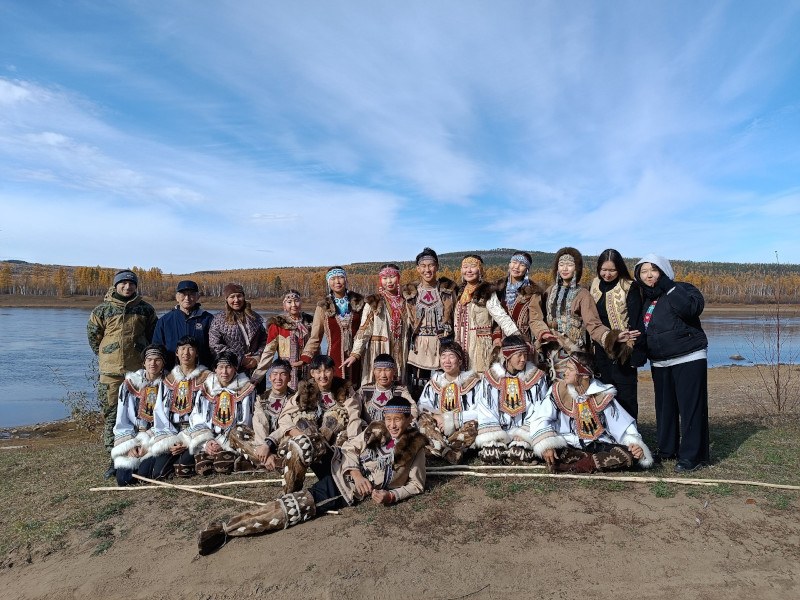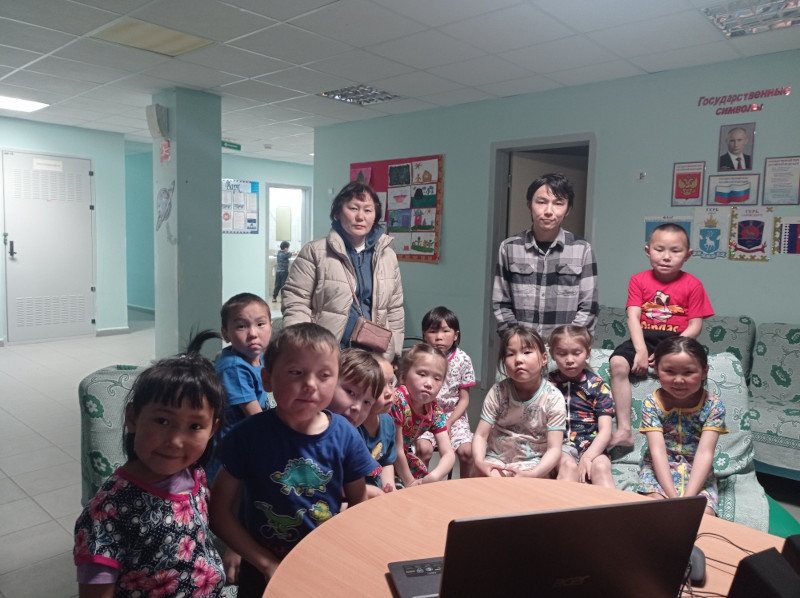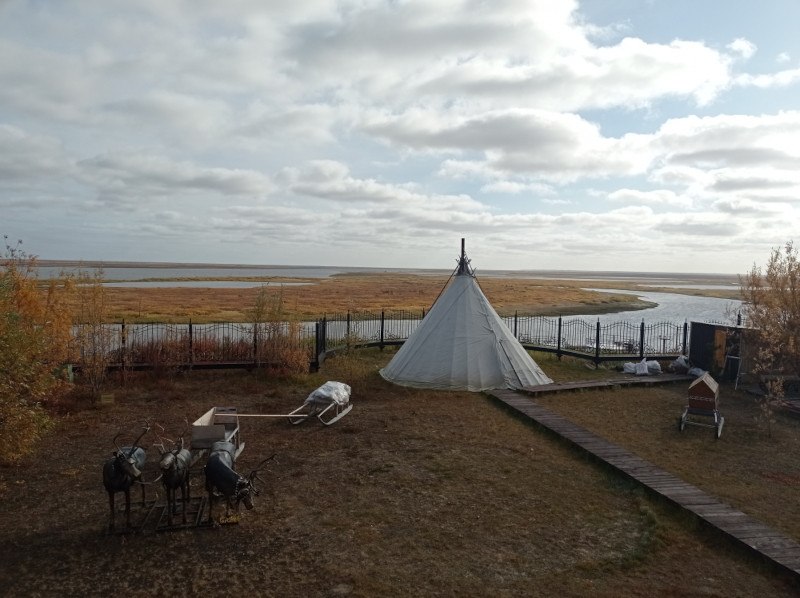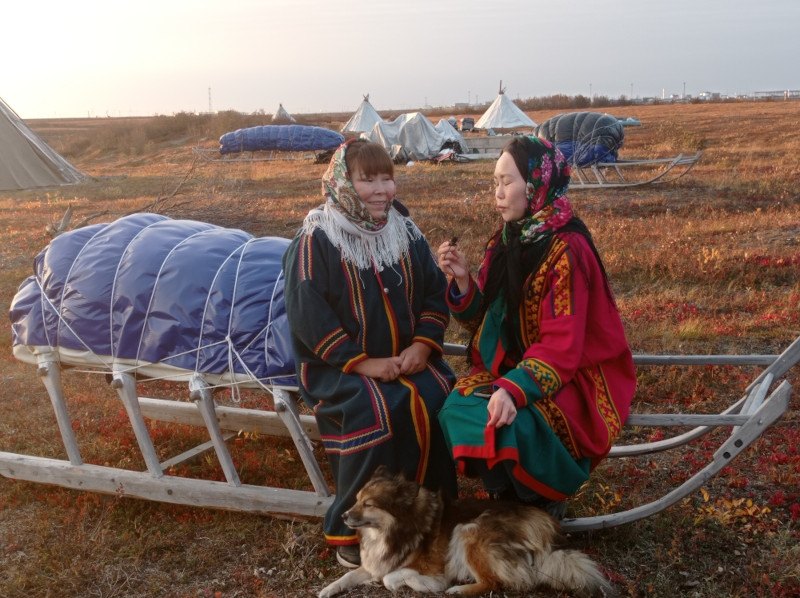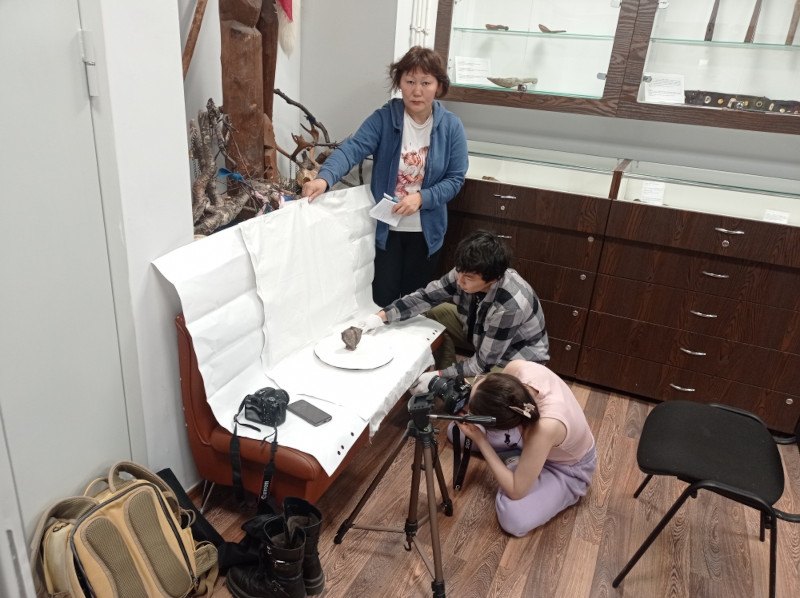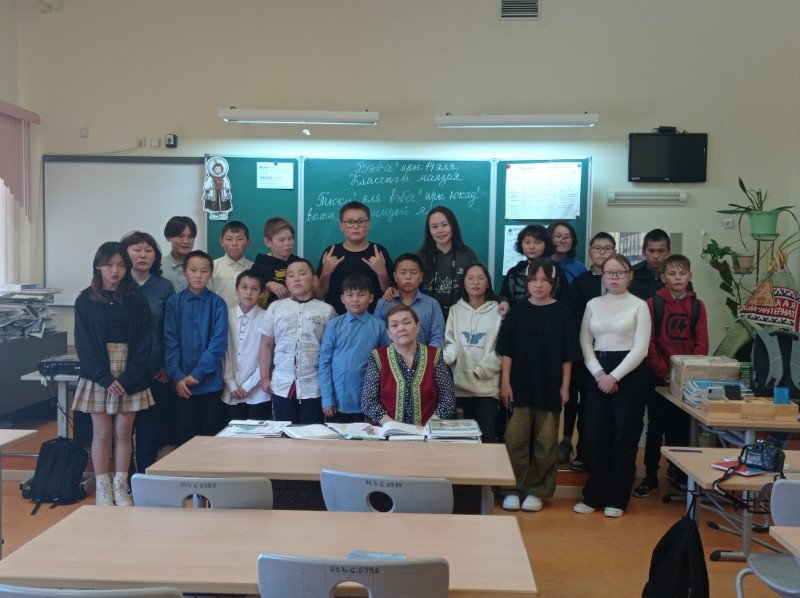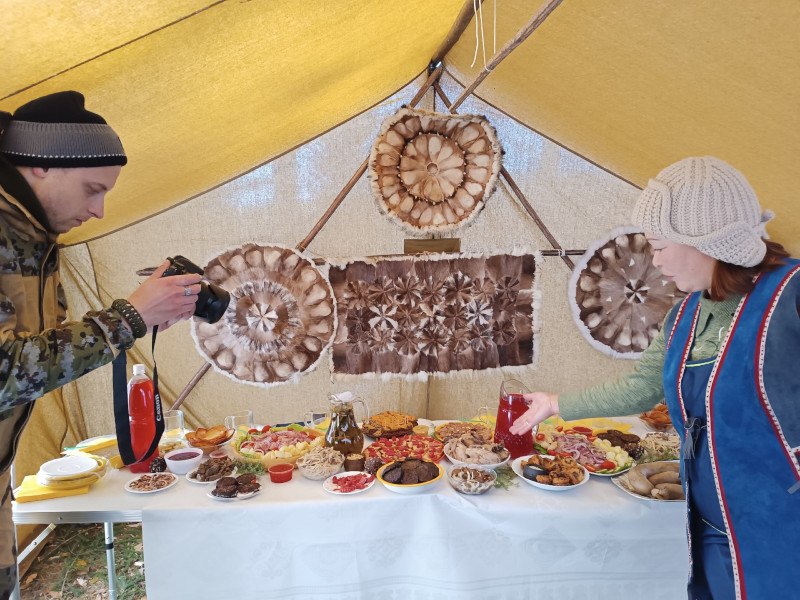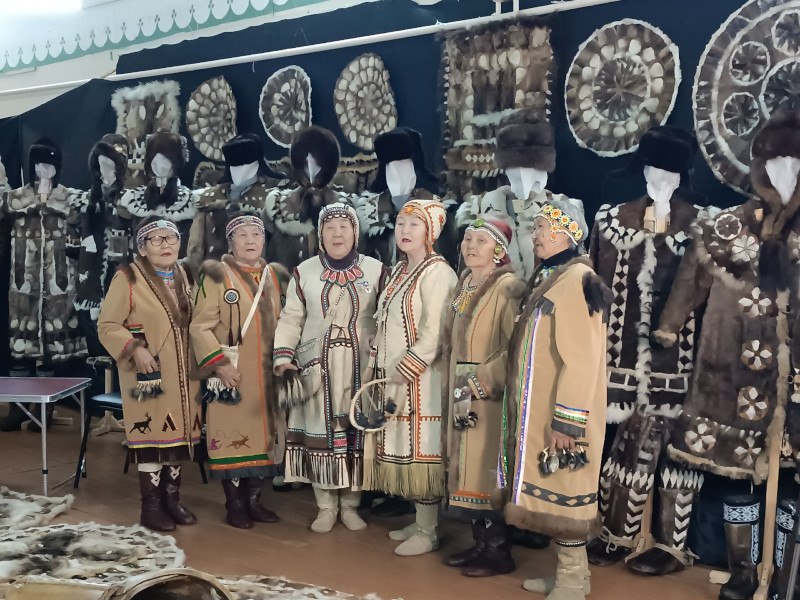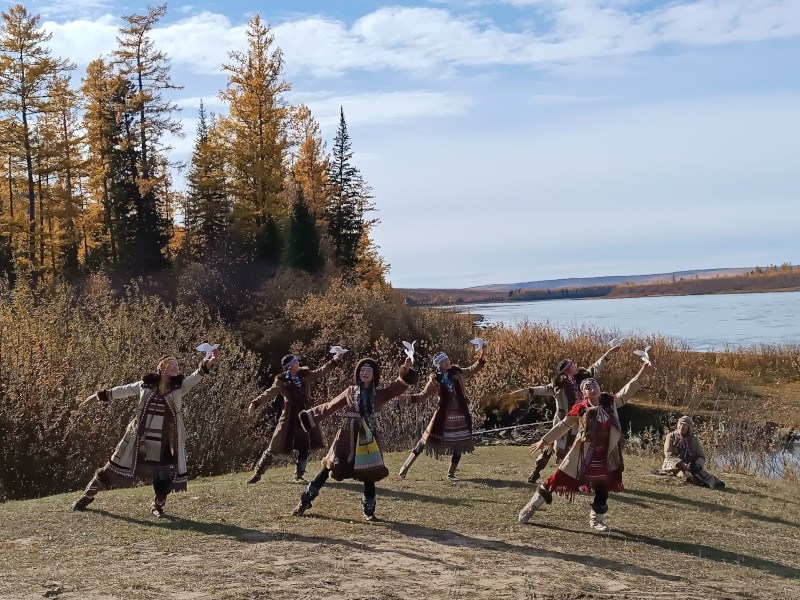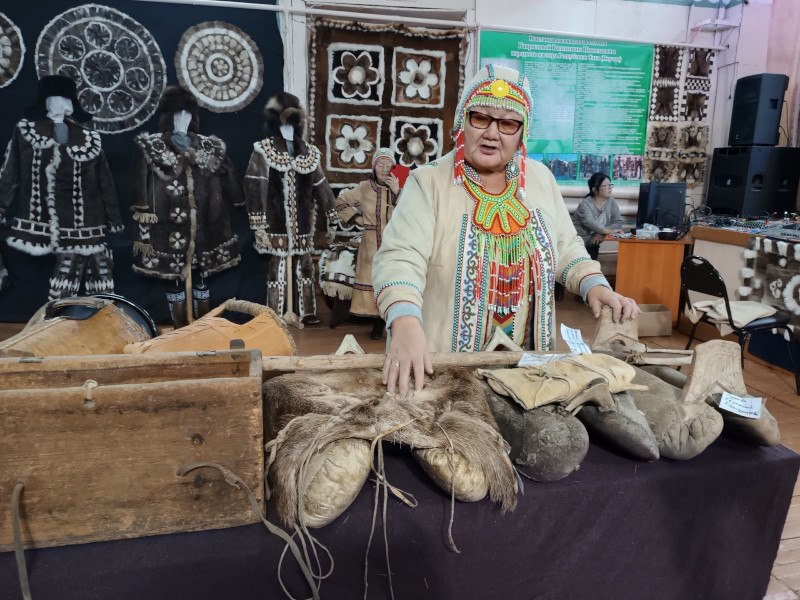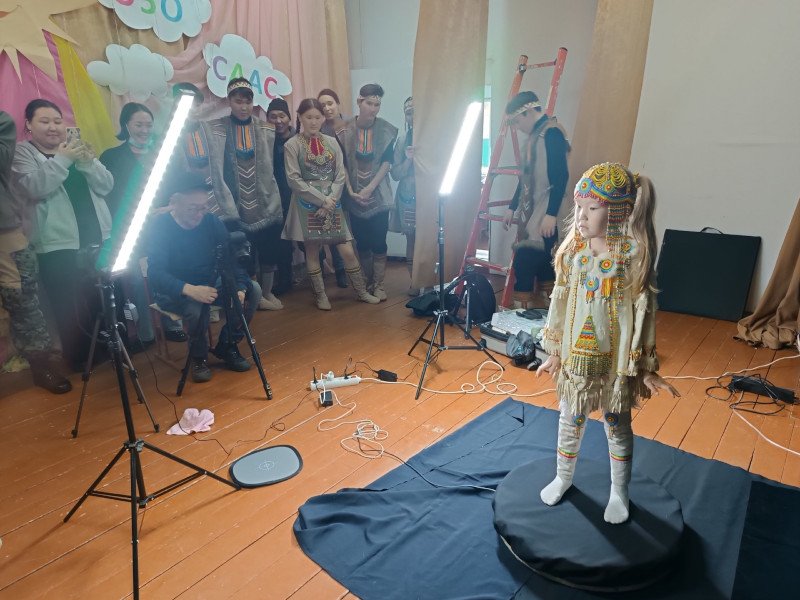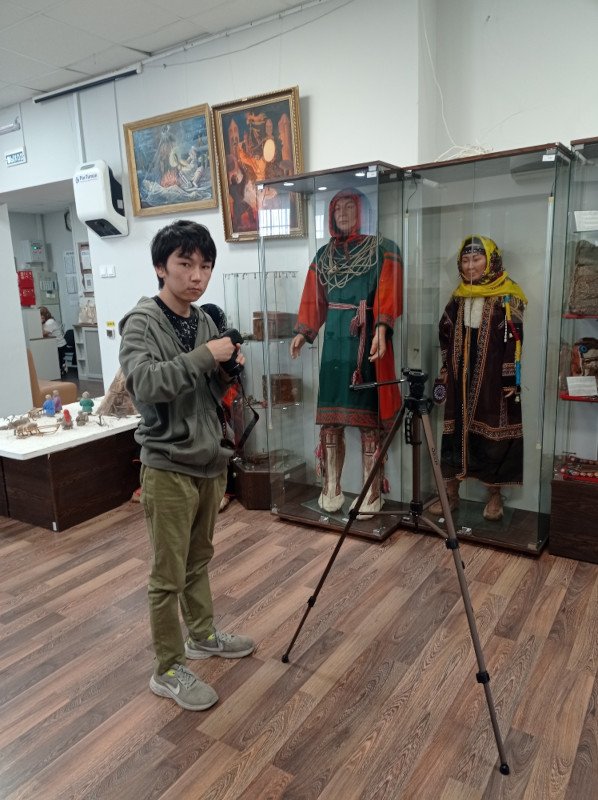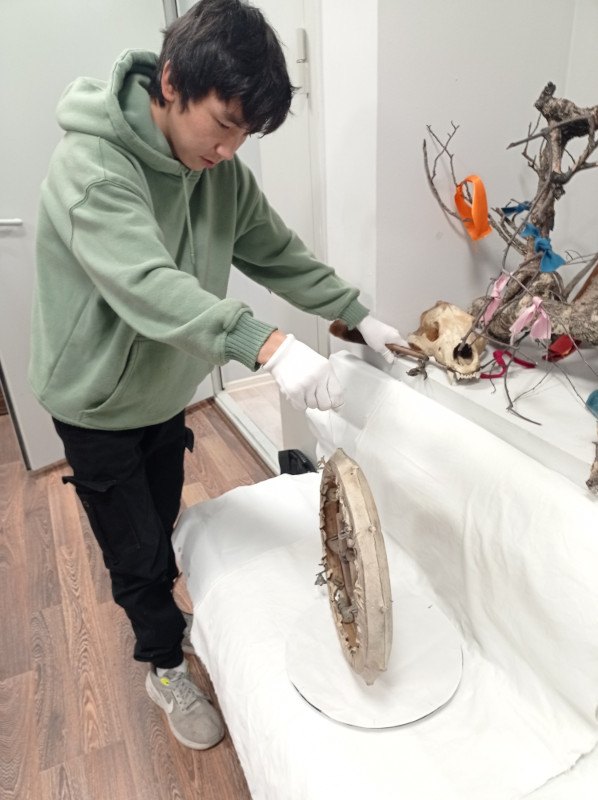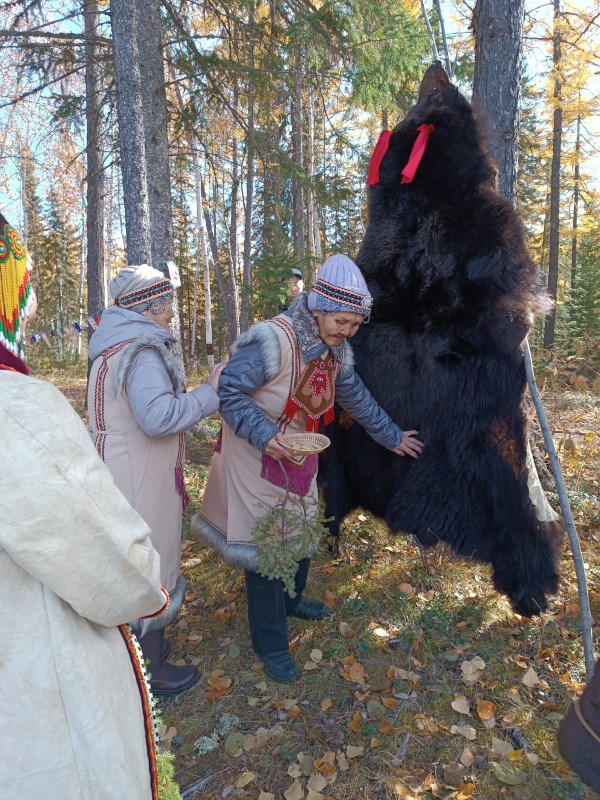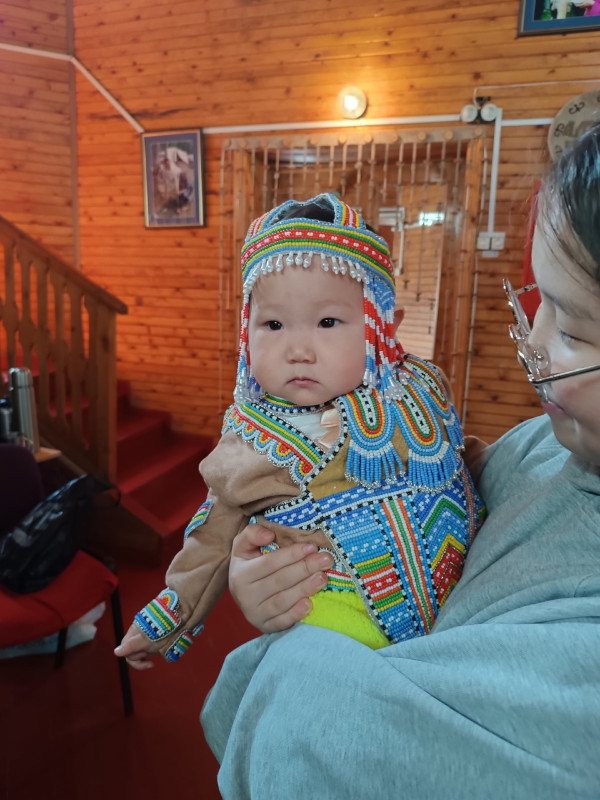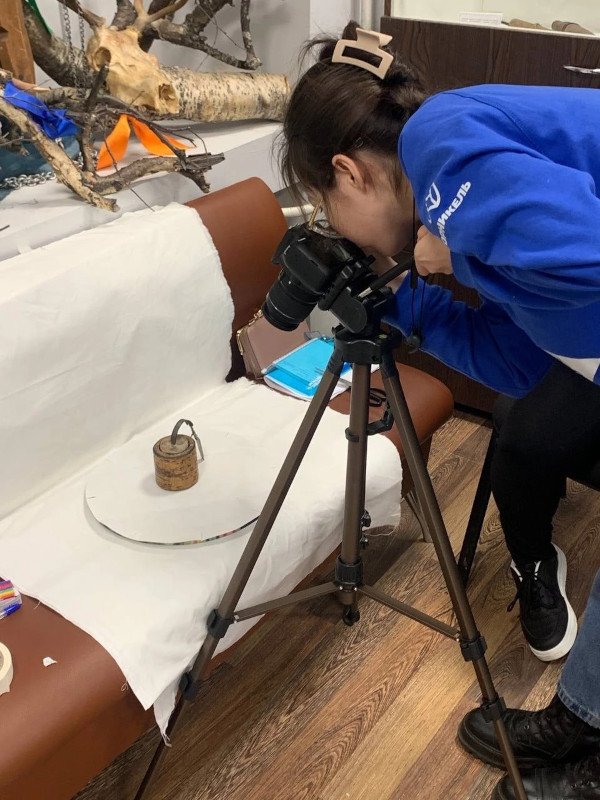In the period from September 11 to 28, an expedition was held on the territory of the Yamalo-Nenets Autonomous Okrug and the Republic of Sakha (Yakutia) as part of the project "Creation of a virtual museum of traditional culture of indigenous minorities of the North, Siberia and the Far East of the Russian Federation," carried out on the state task of the Ministry of Education.
The project, implemented by the Herzen State Pedagogical University of Russia together with the North-East University of Ammosov, is included in the Plan of main measures for holding the International Decade of Indigenous Languages in 2022-2032 in the Russian Federation.
The impetus for the implementation of the project was the discussion of the need to digitalize the linguistic and cultural heritage of the indigenous peoples of the Arctic at events within the framework of Russia's presidency of the Arctic Council.
The main objectives of the project "Creation of virtual museum of Traditional Culture of Indigenous Peoples of the North, Siberia and the Far East of the Russian Federation" are:
- development of an interactive digital resource for a virtual museum using three-dimensional modeling technologies;
- conducting expeditions to collect field material (desk work in local history museums, ethnocenters, camps, work with cultural bearers);
- identifying talented youth and unleashing the creative potential of students;
- expanding the professional competencies of students through training in three-dimensional modeling technologies and field work methods;
- attracting the interest of young people to the origins of traditional culture, cultivating a love for their native language;
- preservation and development of the ethnic culture of the peoples of the Russian Federation;
- ethnocultural education, promotion of ethnic cultural values.
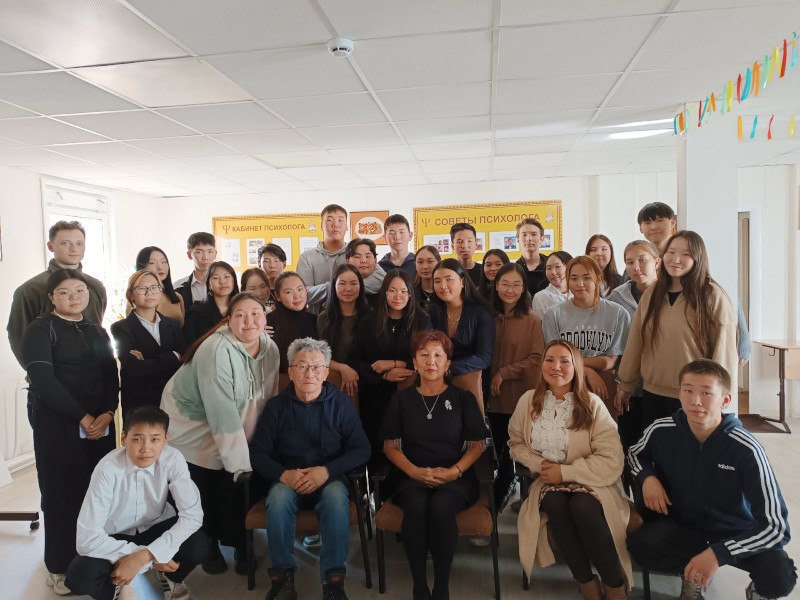 At the first stage of the project, Sergey Vasiliev, head of the laboratory "Center for Three-dimensional Modeling and Virtual Reality" of the Institute of Physics and Technology of the North-East University of Ammosov, held a training seminar on 3D scanning and 3D photogrammetry for employees and students of the Herzen State Pedagogical University of Russia.
At the first stage of the project, Sergey Vasiliev, head of the laboratory "Center for Three-dimensional Modeling and Virtual Reality" of the Institute of Physics and Technology of the North-East University of Ammosov, held a training seminar on 3D scanning and 3D photogrammetry for employees and students of the Herzen State Pedagogical University of Russia.
The second stage of the project was an expedition aimed at collecting field materials in the areas of compact residence of the Nenets and Evenks with the involvement of specialists from local museums and ethnocenters, cultural experts, performers of folklore works, masters of folk art, representatives of reindeer herding communities.
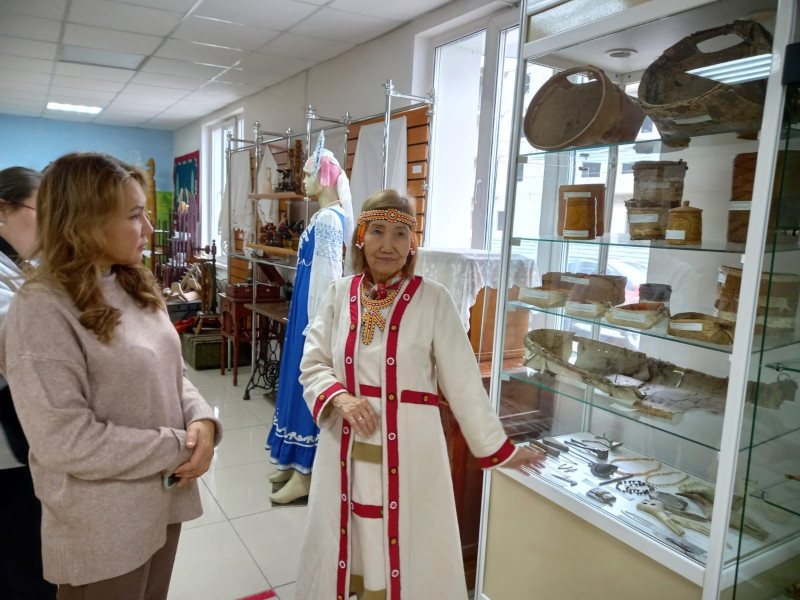 The participants of the Yakut expedition detachment are students and teachers of the Institute of Peoples of the North - Director Sofia Urun, assistant Ivan Makarov, students Anna Semenova and Snezhana Kornilova, also the specialist of the North-East University Sergey Vasiliev. During the expedition in the villages of Tommot, Khatystyr, Ugoyan and Iengra authentic objects of material culture (household items, hunting accessories, tools, vehicles), objects of religious activity (amulets, shamanic attributes, family guards), samples of decorative and applied art (national costumes, jewelry, wood and bone carving) were digitized using unique three-dimensional modeling technologies. The team of expedition recorded samples of dance and musical folklore, live speech and ritual and ceremonial activities of indigenous peoples.
The participants of the Yakut expedition detachment are students and teachers of the Institute of Peoples of the North - Director Sofia Urun, assistant Ivan Makarov, students Anna Semenova and Snezhana Kornilova, also the specialist of the North-East University Sergey Vasiliev. During the expedition in the villages of Tommot, Khatystyr, Ugoyan and Iengra authentic objects of material culture (household items, hunting accessories, tools, vehicles), objects of religious activity (amulets, shamanic attributes, family guards), samples of decorative and applied art (national costumes, jewelry, wood and bone carving) were digitized using unique three-dimensional modeling technologies. The team of expedition recorded samples of dance and musical folklore, live speech and ritual and ceremonial activities of indigenous peoples.
The stories of representatives of the older generation about the technologies of dressing hides, making tendon threads, saddles, the meaning of ornaments, the use of hunting tools became valuable material. The participants of the expedition visited the reindeer herders' camp, where they recorded shamanic ritual. In all localities where the expedition route took place, Urun Sofia conducted career guidance work among schoolchildren.
 The second research team carried out field work among the Nenets of Yamal during the same period. The participants of the Yamal expedition team are the teacher of the Institute of the Peoples of the North, assistant of the Department of Uralic Languages, Folklore and Literature Victoria Valenkova, students Evdokia Yaptune and Victor Okotetto. The route includes village Tazovsky of the Tazovsky district and the village Samburg of the Purovsky district.
The second research team carried out field work among the Nenets of Yamal during the same period. The participants of the Yamal expedition team are the teacher of the Institute of the Peoples of the North, assistant of the Department of Uralic Languages, Folklore and Literature Victoria Valenkova, students Evdokia Yaptune and Victor Okotetto. The route includes village Tazovsky of the Tazovsky district and the village Samburg of the Purovsky district.
 The participants of the expedition worked at the "Tazovsky Museum of Local Lore", visited the Department of Education of the Tazovsky district, Tazovskaya boarding school, Tazovsky district House of Creativity, guest chum "Tatu" and the Permafrost Museum. In the village of Samburg they talked with local residents and tundra workers, met with teachers and students of the boarding school, collectives and pupils of the Youth Sports School, got acquainted with the activities of the rural House of Culture, studied the collection of the school Museum of Local Lore.
The participants of the expedition worked at the "Tazovsky Museum of Local Lore", visited the Department of Education of the Tazovsky district, Tazovskaya boarding school, Tazovsky district House of Creativity, guest chum "Tatu" and the Permafrost Museum. In the village of Samburg they talked with local residents and tundra workers, met with teachers and students of the boarding school, collectives and pupils of the Youth Sports School, got acquainted with the activities of the rural House of Culture, studied the collection of the school Museum of Local Lore.
The received materials after processing will be posted on the pages of the virtual museum of traditional culture of the peoples of the North, Siberia and the Far East. The results of the project will be presented at the round table "Preservation and actualization of the cultural and linguistic heritage of the peoples of the North by means of digital technologies", which will be held in December at the Herzen State Pedagogical University.
An article and pictures by: Sofia Urun, director of the Institute of the people of the North, Herzen State Pedagogical University of Russia.
Related news:
Development in the Russian Arctic
Sustainable Development of Reindeer Husbandry in the Context of Global Changes in the Arctic
Empowering Arctic Indigenous Youth: Voices from Arendalsuka 2023
Parody of "Uptown Funk" by Dolgans Herders

